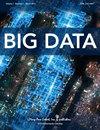Cybersecurity Practices of Rural Underserved Communities in Africa: A Case Study from Northern Namibia
IF 2.6
4区 计算机科学
Q2 COMPUTER SCIENCE, INTERDISCIPLINARY APPLICATIONS
引用次数: 0
Abstract
Globally, Information Communication Technology (ICT) device usage has seen a steep rise over the last few years. This also holds in developing countries, which have embarked on connecting the unconnected or previously disadvantaged parts of their populations. This connectivity enables people to interact with cyberspace, which brings opportunities and challenges. Opportunities such as the ability to conduct business online, attend online education, and perform online banking activities. Challenges experienced are the cost of Internet access and more worrying cyber-risks and potential for exploitation. There remain pockets of communities that experience sporadic connectivity to cyberspace, these communities tend to be more susceptible to cyber-attacks due to issues of lack/limited awareness of cyber secure practices, an existent culture that might be exploited by cybercriminals, and overall, a lackluster approach to their cyber-hygiene. We present a qualitative study conducted in rural Northern Namibia. Our findings indicate that both secure and insecure cybersecurity practices exist. However, through the Ubuntu and Uushiindaism Afrocentric lenses, practices such as sharing mobile devices without passwords among the community mirror community unity. Practices such as this in mainstream research can be considered insecure. We also propose interrogating “common” secure cybersecurity practices in their universality of applicability.非洲农村服务不足社区的网络安全实践:来自纳米比亚北部的案例研究
在全球范围内,信息通信技术(ICT)设备的使用在过去几年中急剧上升。这一点在发展中国家也同样适用,这些国家已着手将其人口中未联网或以前处于不利地位的部分连接起来。互联互通使人们能够与网络空间互动,这既带来机遇,也带来挑战。诸如在线开展业务、参加在线教育和执行在线银行活动的能力等机会。面临的挑战是互联网接入的成本以及更令人担忧的网络风险和被利用的可能性。仍然有一些社区经历零星的网络连接,这些社区往往更容易受到网络攻击,因为缺乏/有限的网络安全实践意识,现有的文化可能被网络罪犯利用,总的来说,他们的网络卫生方法平淡。我们提出了一项在纳米比亚北部农村进行的定性研究。我们的研究结果表明,安全和不安全的网络安全实践都存在。然而,通过Ubuntu和Uushiindaism以非洲为中心的视角,在社区之间共享移动设备无需密码等做法反映了社区的团结。在主流研究中这样的做法可以被认为是不安全的。我们还建议对“常见”安全网络安全实践的普遍性适用性进行质疑。
本文章由计算机程序翻译,如有差异,请以英文原文为准。
求助全文
约1分钟内获得全文
求助全文
来源期刊

Big Data
COMPUTER SCIENCE, INTERDISCIPLINARY APPLICATIONS-COMPUTER SCIENCE, THEORY & METHODS
CiteScore
9.10
自引率
2.20%
发文量
60
期刊介绍:
Big Data is the leading peer-reviewed journal covering the challenges and opportunities in collecting, analyzing, and disseminating vast amounts of data. The Journal addresses questions surrounding this powerful and growing field of data science and facilitates the efforts of researchers, business managers, analysts, developers, data scientists, physicists, statisticians, infrastructure developers, academics, and policymakers to improve operations, profitability, and communications within their businesses and institutions.
Spanning a broad array of disciplines focusing on novel big data technologies, policies, and innovations, the Journal brings together the community to address current challenges and enforce effective efforts to organize, store, disseminate, protect, manipulate, and, most importantly, find the most effective strategies to make this incredible amount of information work to benefit society, industry, academia, and government.
Big Data coverage includes:
Big data industry standards,
New technologies being developed specifically for big data,
Data acquisition, cleaning, distribution, and best practices,
Data protection, privacy, and policy,
Business interests from research to product,
The changing role of business intelligence,
Visualization and design principles of big data infrastructures,
Physical interfaces and robotics,
Social networking advantages for Facebook, Twitter, Amazon, Google, etc,
Opportunities around big data and how companies can harness it to their advantage.
 求助内容:
求助内容: 应助结果提醒方式:
应助结果提醒方式:


